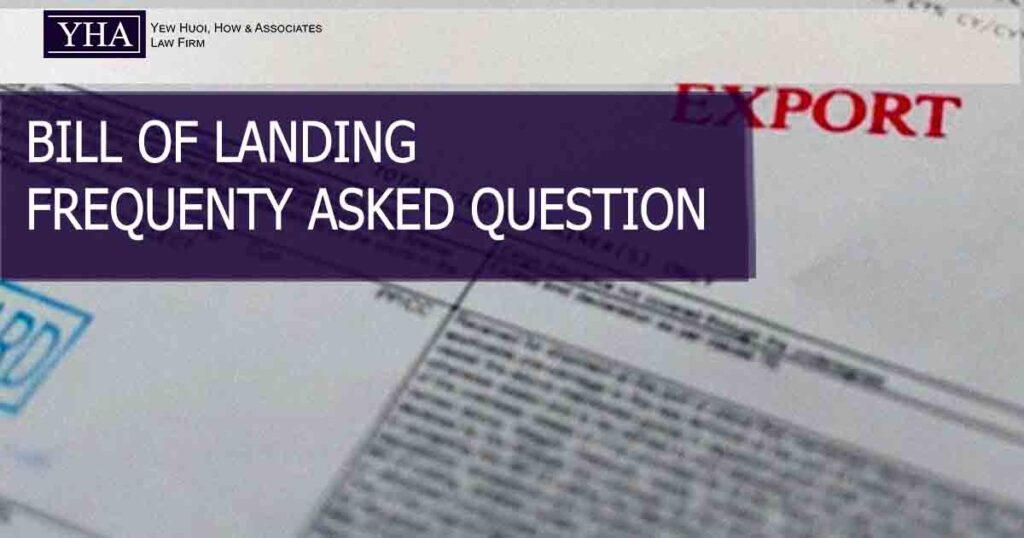This legal update sets out the frequently asked questions on matters relating to Bills of Lading (“BLs”).
What are bills of lading (“BLs”) and its legal function?
- BLs serve 3 important functions:
- Document of title of the cargo laden on board of the vessel;
- Contract of carriage; and
- Receipt of goods carried on vessel.
What are the laws the governed BLs in Malaysia?
- States other than Malacca, Penang, Sabah & Sarawak – The United Kingdom Bills of Lading Act 1855
- Malacca, Penang, Sabah & Sarawak – The United Kingdom Carriage of Goods by Sea Act 1992
Why UK statutes apply?
- This is due to the application of Section 5 of the Civil Law Act 1956.
What is a NVOCC BL?
- NVOCC is the abbrievation for “Non-Vessel Operating Common Carrier”.
- NVOCC is a carrier that does not own the ship that carries the goods laden on board.
- The use of NVOCC BL was developed by industry players as part of the move to simplify procedures and requirements to speed up shipping processes.
- Original BL issued by the shipowner will usualy bear the name of the forwarding agent or booking parties as the shipper and consignee. Instead of having to get shipowners to re-issue a new BL in the name of the actual cargo owners (which will take time), forwarding agent or booking parties will issue an NVOCC BL in their name as Non-Vessel Operating Common Carrier.
Is NVOCC BLs valid in law?
- NVOCC has the same function as an ordinary BL issued by the shipowner. The forwarding agent or whoever signs as the carrier assumes the role of a carrier. As carrier, they are legally required to only release cargo on production of original BL.
To whom the BL is to be given to?
- Carrier would have to issue the BL to the person who has shipped the goods. If the carrier refuses to issue BL, the shipper may demand his goods back.
Can goods be delivered without production of BL?
- No. Carrier is under a legal duty to deliver goods against the production of the original BL.
- Carrier is not allowed to release goods against a switch BL.
- Legally, carrier has no right to alter the BL after the goods have been put on board of the ship.
What are the consequences of so doing?
- Carrier will be liable for breach of contract of carriage, bailment and/or conversion.
What is a telex release?
- The practice of producing original physical copy of the BL at the port of discharge might not be feasible in modern shipping context. This is because original BL may not be mailed to the destination quick enough for cargo release. This failure may result in cargo owners incurring detention and demurrage charges at the port of destination.
What is a letter of Indemnity (“LOI”)?
- A LOI is a private agreement to indeminify carrier if there is a claim for loss due to its release of cargo without production of BL.
- LOI is only valid between contracting parties to the contract of indemnity.
- A LOI does not absolve shipowner or carrier from its legal liabilities under the BL.

